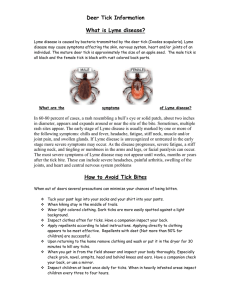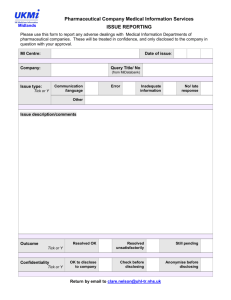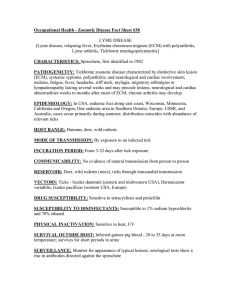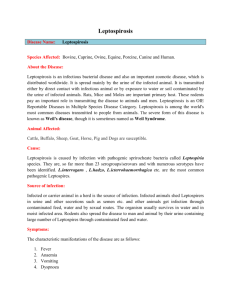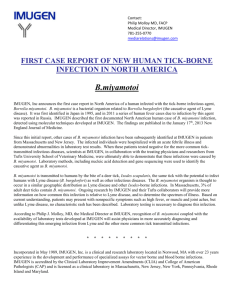Leptospirosis and Lyme Disease
advertisement
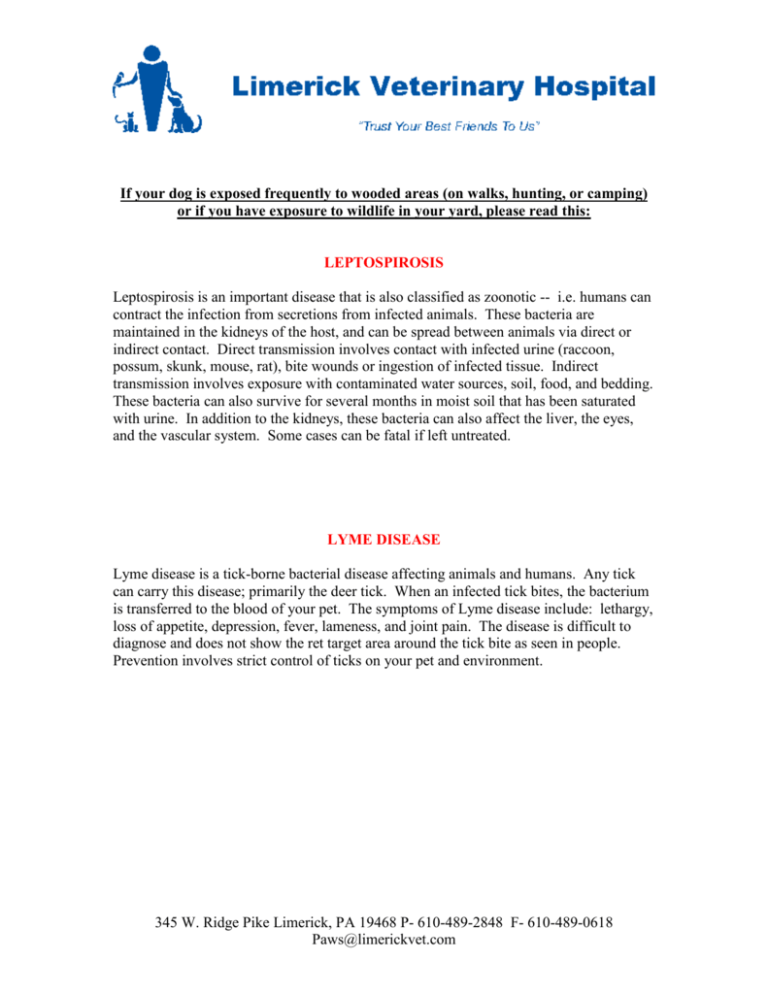
If your dog is exposed frequently to wooded areas (on walks, hunting, or camping) or if you have exposure to wildlife in your yard, please read this: LEPTOSPIROSIS Leptospirosis is an important disease that is also classified as zoonotic -- i.e. humans can contract the infection from secretions from infected animals. These bacteria are maintained in the kidneys of the host, and can be spread between animals via direct or indirect contact. Direct transmission involves contact with infected urine (raccoon, possum, skunk, mouse, rat), bite wounds or ingestion of infected tissue. Indirect transmission involves exposure with contaminated water sources, soil, food, and bedding. These bacteria can also survive for several months in moist soil that has been saturated with urine. In addition to the kidneys, these bacteria can also affect the liver, the eyes, and the vascular system. Some cases can be fatal if left untreated. LYME DISEASE Lyme disease is a tick-borne bacterial disease affecting animals and humans. Any tick can carry this disease; primarily the deer tick. When an infected tick bites, the bacterium is transferred to the blood of your pet. The symptoms of Lyme disease include: lethargy, loss of appetite, depression, fever, lameness, and joint pain. The disease is difficult to diagnose and does not show the ret target area around the tick bite as seen in people. Prevention involves strict control of ticks on your pet and environment. 345 W. Ridge Pike Limerick, PA 19468 P- 610-489-2848 F- 610-489-0618 Paws@limerickvet.com
